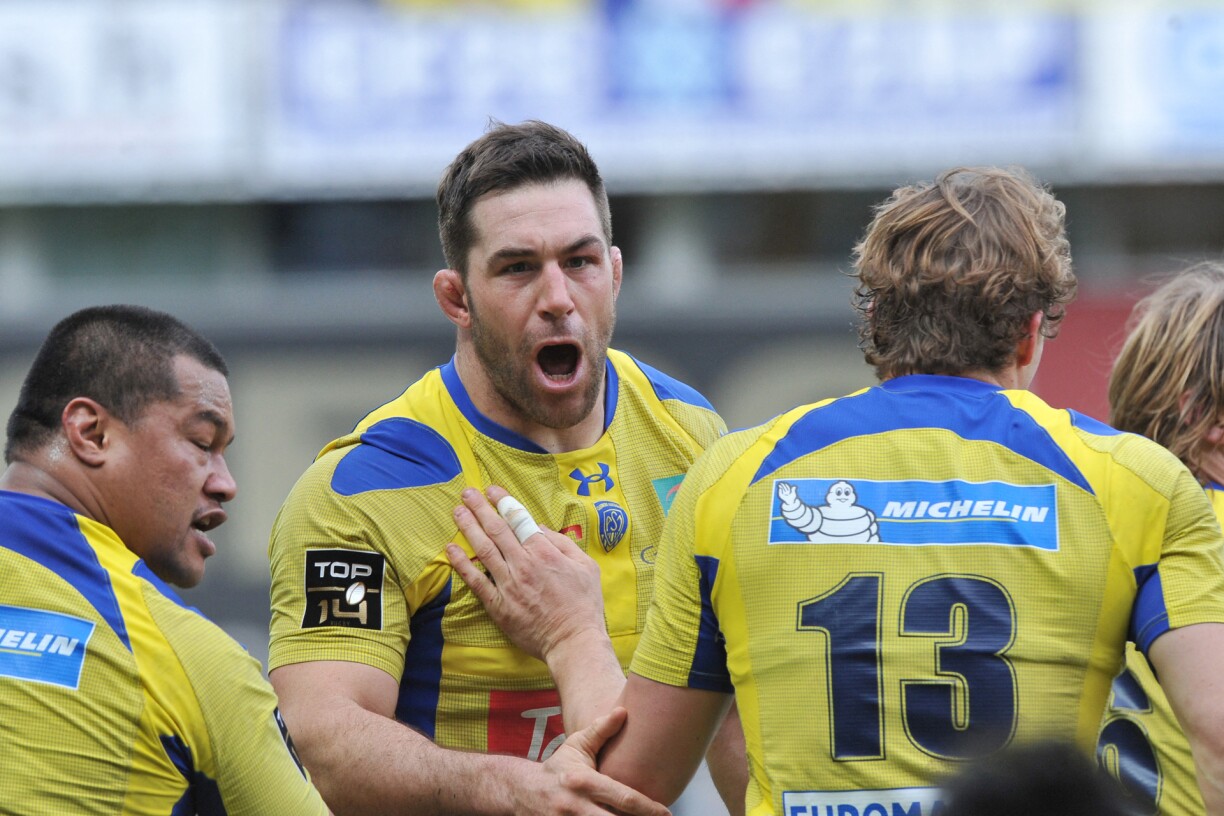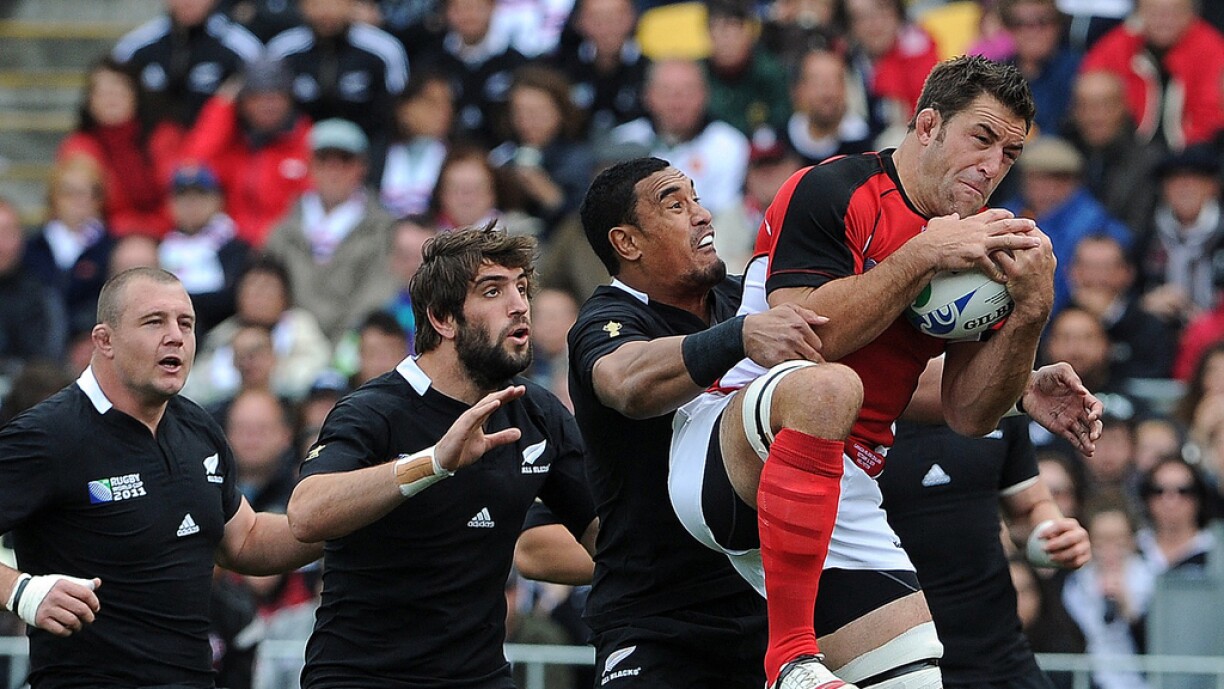
In what is quite possibly Luxembourg rugby’s biggest ever coup, the federation has appointed Jamie Cudmore as set-piece and contact area coach – a legend of the sport renowned for his enforcer style of play and being one of Canada’s best ever players.
When scouring the web for Cudmore, it is quite likely you will stumble across videos entitled “rugby’s biggest thug” or “one of rugby’s toughest and most intimidating players”. Hence, my nervousness at meeting such an imposing character, expecting blunt and to the point answers. In reality it was quite the opposite.
For a man who stands 1.96m tall and looks built to flip cars, one of the last things you would expect his core coaching values to be is care. “I’m very generous with care – care for my players, understanding what they need and how I can help them be successful. It’s about giving them the tools to get what they want, which, more often than not, is a collective goal: winning.”

However, his playing style as a former professional – reaching four World Cups and earning numerous playing accolades – still seeps through into his coaching style. He alluded to the importance of the physical nature of the sport: “Understanding how to get players to that edge. We don’t want them to tip over, because that means penalties, maybe cards, but we don’t want them too flat.”
A balancing act, he explains, achieving aggression without recklessness. “So connecting with them, talking to them, understanding how to rile them up or calm them down. It is going to be a big thing for us as a coaching staff to understand how to get everybody on that edge and make sure everybody is present on the field of play.”
Away from the pitch, however, Cudmore has channelled his drive into a very different area. Currently based in Nice and working as forwards and defence coach for Nissa Rugby in Nationale 1, he is clearly obsessed with the sport but has also discovered a new entrepreneurial side following his playing career. He attributes much of this to his wife, whom he calls “a very smart cookie”, having opened a restaurant, a nightclub, and even started his own wine brand, appropriately named Sin Bin Red Card.
Drawing comparisons between the two worlds, he explains: “The entrepreneurial spirit comes through in trying to find new ideas and how do you implement those in a team environment. Which is very similar to running a business. If you get an idea you have to disseminate your idea to your employees, how do you present it, how do we put it in place, and how do we execute it at the end of the day.”
Innovation and communication, he says, are just two prime examples of the rich experience he has gained in his new line of work.
That entrepreneurial guile could be one of the reasons he took on the project in Luxembourg, alongside his long standing bond with current head coach James Kent, with whom he has previously worked together for rugby Canada. “It’s a really interesting project, in terms of you don’t have very much time, you have your players playing in multiple areas. Then trying to quickly create some cohesion and get clarity on roles, responsibilities, how we want to play, when those groups come together. To me it’s going to be a great experience, I’ve worked in international and club rugby before, I know all of the different levels. But adapting that knowledge into creating a successful team, in a short period of time, is very, very interesting.”
Having already partaken in his first training camp with the Luxembourg rugby setup, he noted his delight at seeing the eagerness of the players to work hard and their willingness to learn. Emphasising the “youthful exuberance” being well balanced with some of the older, more experienced players, stating he is happy with the talent in the team but enabling the players to have access to a higher level of rugby is one of the keys to success. “It has to come from the grassroots up, then when those boys from 18–24 want to push on to something more high level, we have to support that.”
Nevertheless, he is more than satisfied with the current crop of players and underpins the importance of their role in creating a successful philosophy: “In my opinion it can’t always be directive, it can’t always be the coaches leading. We create the framework and then we need the players to take ownership and push the team forward. It’s a symbiotic relationship, it has to be collaborative.” That collaborative spirit could prove crucial for Luxembourg, a side that relies on collective buy-in to punch above their weight in European competition against teams usually physically more astute than themselves.
When questioned on how his rugby experience at such an elite level translates to a smaller rugby nation, he stressed it gave him a “satellite view” on where the current structure is at. Even going as far as comparing World Cup preparation time between games to the short period the Luxembourg squad has prior to a match. “I remember we played Tonga in 2011, then four days later we played France. It’s similar with Luxembourg – we only really have four days to turn around, where we have to get in, put a game plan in place, and build a connection between the players. That experience will hopefully parlay into helping us prepare as best we can and ultimately be successful.”
It’s an exciting time to be a Luxembourg rugby fan, with the addition of Cudmore alongside James Kent and Scott Browne, they will likely form a formidable trio at the helm of Luxembourg rugby, but how it all pans out remains to be seen.
For a man once branded one of rugby’s fiercest enforcers, it’s striking that Luxembourg’s newest addition may actually rely more on his softer side through care and collaboration.